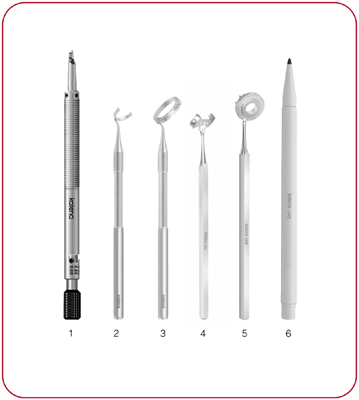
Some patients may experience the following post-operative symptoms for a few days following the procedure:Īny post-operative discomfort will be managed with over-the-counter pain medication such as Tylenol. What can I expect after getting Limbal Relaxing Incisions?
You will be fitted with eye shields to protect your eyes.įollowing the procedure, you are taken to the recovery area where you will receive a final eye check prior to going home. Once the tiny arc-shaped incisions have been completed, antibiotic drops are placed in your eye and the eyelid holder is removed. Next, you are asked to look into a light while a femtosecond laser or a Diamond scalpel makes precise incisions in your cornea using the template designed to address the specific amount of vision correction you need.ĪEI’s Treatment System includes a laser-guided measurement system that provides real-time feedback of the vision change achieved, thus enabling the surgeon to refine the incisions immediately, until the desired vision correction is achieved. Here’s what takes place during an LRI procedure:Īfter your eyes are cleansed, your doctor applies numbing eye drops and puts on a device that keeps you from blinking during the procedure. Prior to surgery, your doctor uses a special computer to produce a topographical map of your eye and create a template that will guide your procedure. It is performed with anesthetic eye drops, does not require stitches and you can go home the same day following a brief examination in the recovery room. That said, possible complications of LRI's can include infection, over-correction, under-correction, micro-perforation of the cornea, induced astigmatism, discomfort, and decreased corneal sensation.Īn LRI procedure performed at AEI takes about five minutes per eye. The limbal relaxing incision procedure is remarkably safe and complications are extremely rare. 
While most patients typically experience significant improvements to their vision after an LRI, some may still require vision correction in the form of glasses or contacts. It is important for patients to be in good overall health and to have realistic expectations before undergoing this procedure. Have undergone prior eye surgery and have residual astigmatismĪfter performing a comprehensive eye exam, your surgeon will discuss whether this option is the best fit for you. Are planning cataract surgery and wish to correct their astigmatism at the same time.

Wish to reduce the need for glasses or contact lenses.This procedure is often ideal for patients who: Who is Limbal Relaxing Incisions good for?






 0 kommentar(er)
0 kommentar(er)
